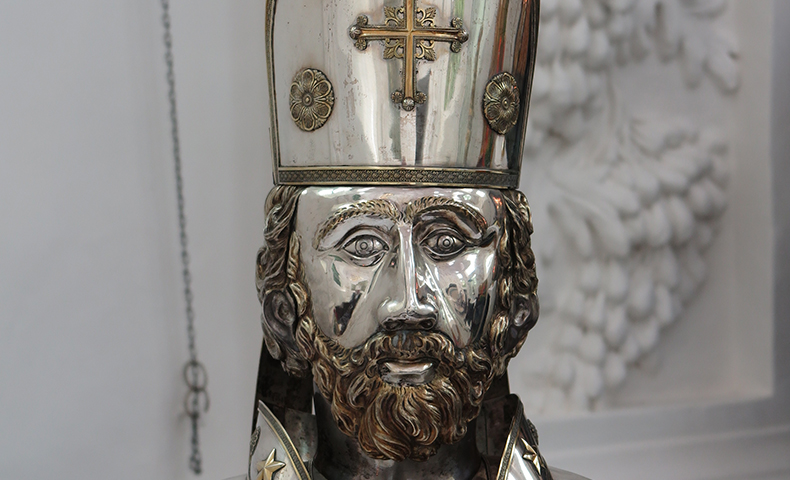San Cipriano, Saint of the day for 11 September

(d.258)
The story of San Cipriano
Cyprian is important in the development of Christian thought and practice in the third century, especially in North Africa.
Highly educated, famous orator, he became a Christian as an adult. He distributed his goods to the poor and amazed his fellow citizens by taking a vow of chastity before his baptism. Within two years he had been ordained a priest and had been chosen, against his will, Bishop of Carthage.
Cyprian complained that the peace enjoyed by the Church had weakened the spirit of many Christians and opened the door to converts who did not have the true spirit of faith. When the persecution in Decian began, many Christians easily left the Church. It was their reintegration that caused the great controversies of the third century and helped the Church advance in its understanding of the Sacrament of Penance.
Novato, a priest who had opposed the election of Cyprian, took office in Cyprian's absence (he had fled to a hiding place from which to direct the Church, bringing criticism) and received all the apostates without imposing any canonical penance. Eventually he was convicted. Cyprian held a middle ground, arguing that those who had actually sacrificed themselves to idols could receive Communion only at death, while those who had only purchased certificates claiming to have sacrificed themselves could be admitted after a shorter or longer period of penance. This too was relaxed during a new persecution.
During a plague in Carthage, Cyprian urged Christians to help everyone, including their enemies and persecutors.
A friend of Pope Cornelius, Cyprian opposed the next Pope, Stephen. He and the other African bishops would not have recognized the validity of baptism conferred by heretics and schismatics. This was not the universal vision of the Church, but Cyprian was not intimidated even by Stephen's threat of excommunication.
He was exiled by the emperor and then recalled for trial. He refused to leave the city, insisting that his people have the testimony of his martyrdom.
Cyprian was a mixture of kindness and courage, vigor and firmness. He was cheerful and serious, so much so that people didn't know whether to love him or respect him more. He warmed up during the baptismal controversy; his feelings must have worried him, for it was at this time that he wrote his treatise on patience. St. Augustine observes that Cyprian atoned for his wrath with his glorious martyrdom. Its liturgical feast is on September 16.
Reflection
The controversies over Baptism and Penance in the third century remind us that the early Church did not have ready-made solutions from the Holy Spirit. Church leaders and members of that day had to painfully go through the best set of judgments they could make in an effort to follow the entire teaching of Christ and not be swayed by exaggerations to the right or left.